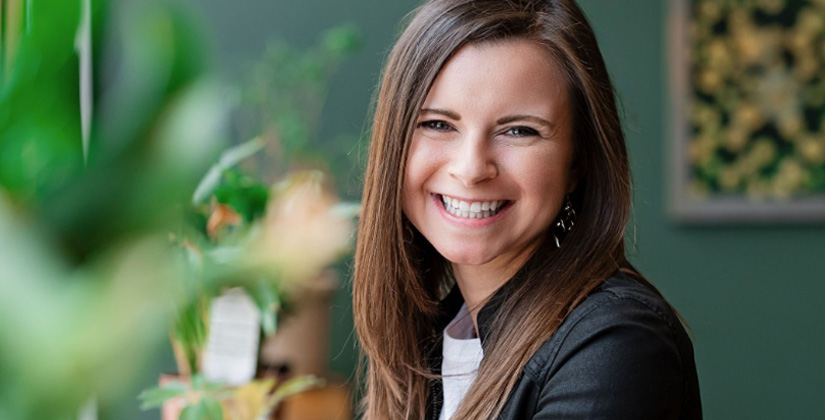Mentoring Minute: A Conversation with Courtney Gras

Courtney Gras serves as Startup Community Lead at Amazon Web Services where she manages the strategy and operations for a global community of over 6,000 startup CTOs. A former cleantech founder herself, Courtney mentors tech startup founders in Northeast Ohio with Burton D. Morgan Mentoring Program and is the author of The Student Startup Guide, a book that makes entrepreneurship approachable with its collection of advice-filled stories from student founders.
In this conversation, Ali King, Director, Burton D. Morgan Mentoring Program, speaks with Courtney about what she calls “mentor mindset”—the attitudes and practices that lead to healthy, productive mentoring relationships.
AK: Hi Courtney! We’re thrilled to welcome you as one of the newest Burton D. Morgan mentors; could you share an overview of your mentoring journey for our readers?
CG: Sure! My mentoring journey began when I started a company while studying at the University of Akron. We were paired with an entrepreneur-in-residence via JumpStart, Inc., who we later brought on full-time. As a first-time founder, you don’t really understand how to best leverage a mentor – for me, it was a lot of trial and error and learning how to ask for help in the right ways. From there, I became more engaged with peer mentoring as part of Northeast Ohio’s founder network, and in 2018 joined the Techstars team, which runs the world’s largest network of startup accelerator programs. That platform gave me the opportunity to engage with thousands of volunteer mentors and observe how they were trained at scale, the lessons from which I still use today at Amazon Web Services and beyond.
AK: What is the Techstars Mentor Manifesto?
CG: Techstars cofounders Brad Feld and David Cohen devised the Manifesto as a kind of code of ethics for mentors. It’s accessible, universal, and leaves room for interpretation. Mentoring is like any other human relationship – it needs transparency, ground rules, and effective communication to create a safe space for growth. Listening actively, asking questions, advising rather than opining, and giving without the expectation of receiving are just a few bullet points in the Manifesto that resonate with me.
AK: What advice do you give to first-time mentors and mentees?
CG: From the very first interaction, mentors should be prescriptive and specific about how they can help mentees — professional introductions, document review, pitch practice, accountability coaching, etc. Think broadly, too – your primary area of expertise is just a starting point.
Mentees should own more of the organizational aspects – like meeting coordination, agenda, and metrics. I always tell mentees to confirm their mentors’ communication preferences – text, email, WhatsApp, time of day, etc. Proactively reporting back to mentors on progress and obstacles in between meetings is a sign of respect, too.
AK: Is there an optimal duration for mentoring relationships?
CG: It varies, but I think it takes multiple meetings to really build a level of trust between mentor and mentee. Mentoring is unique because it threads the needle between professional and personal. Mentees should ideally feel like they can confront doubts and even burnout with their mentor. I know some mentors who reserve a portion of every meeting to connect on non-work topics to help build that rapport.
Anecdotally, most Techstar accelerator graduates who spent 12 continuous weeks working with their mentors were still in touch with at least one of them well after the program ended. I’ve had decade-long relationships with mentors, even if it’s just an annual call.
AK: Any recommendations to restart a mentoring relationship that has stalled?
CG: I encourage mentors to take the lead on a conversation if they’re noticing lack of engagement or productivity. It’s best to start from a place of empathy, acknowledging that founders are under high stress and may simply be juggling priorities. Proposing solutions rather than laying blame goes a long way – consider different meeting formats and schedules. If adapting doesn’t work, it’s perfectly fine to offer that someone else might be a better fit and move on. Mentoring at its best should be gratifying for all involved.